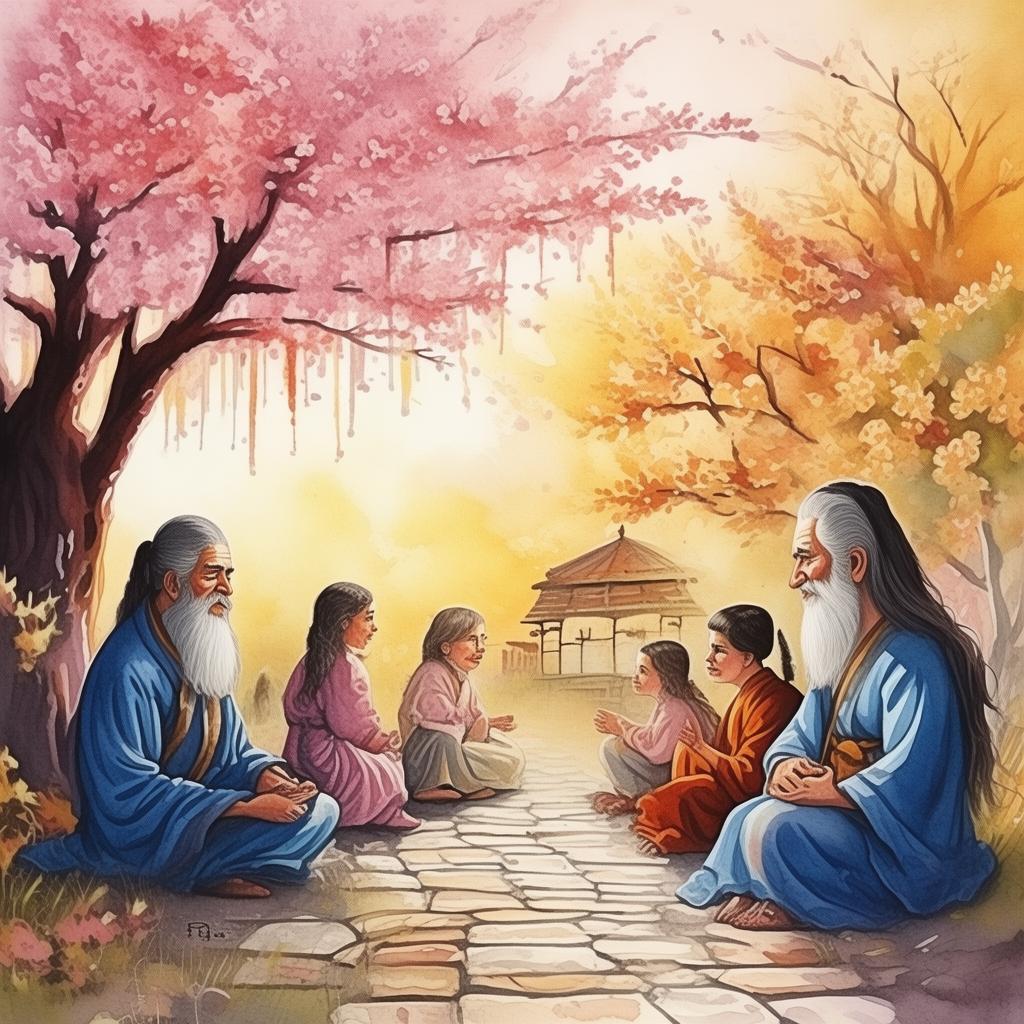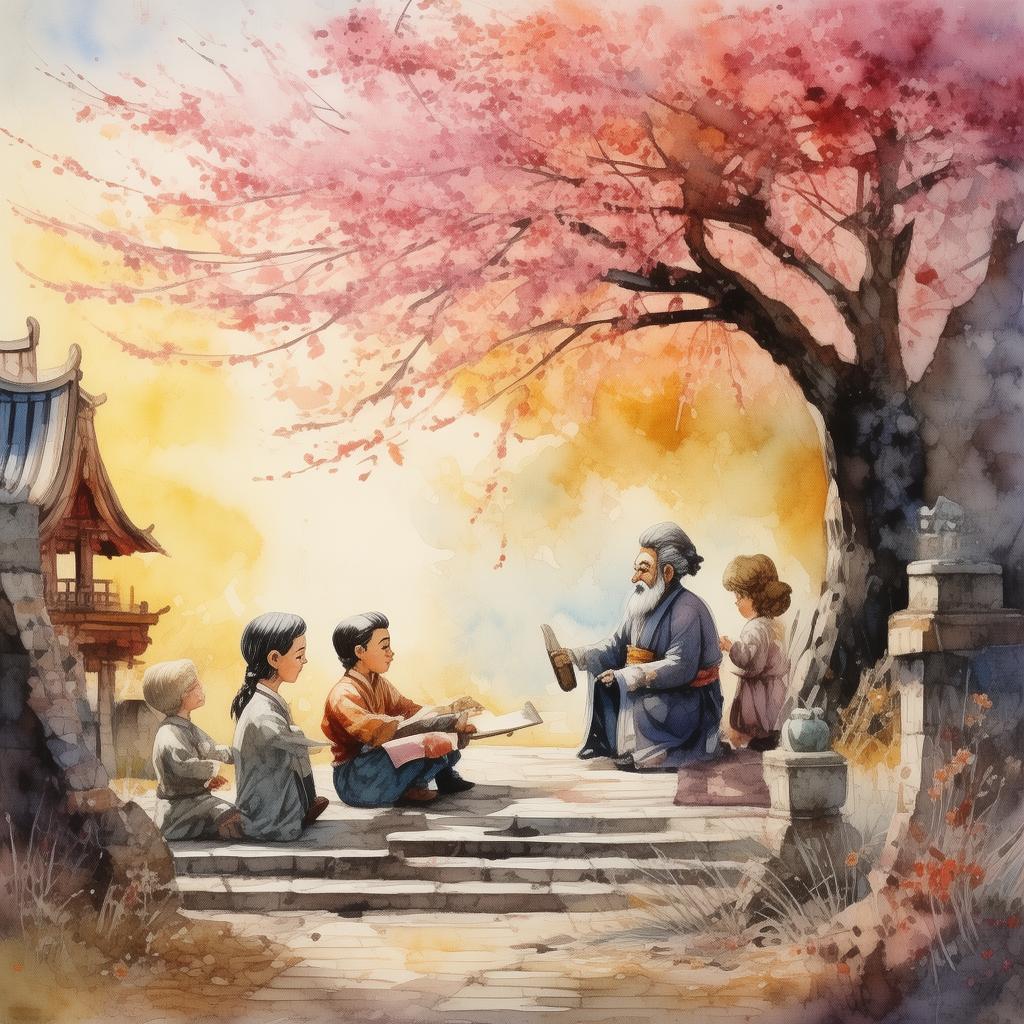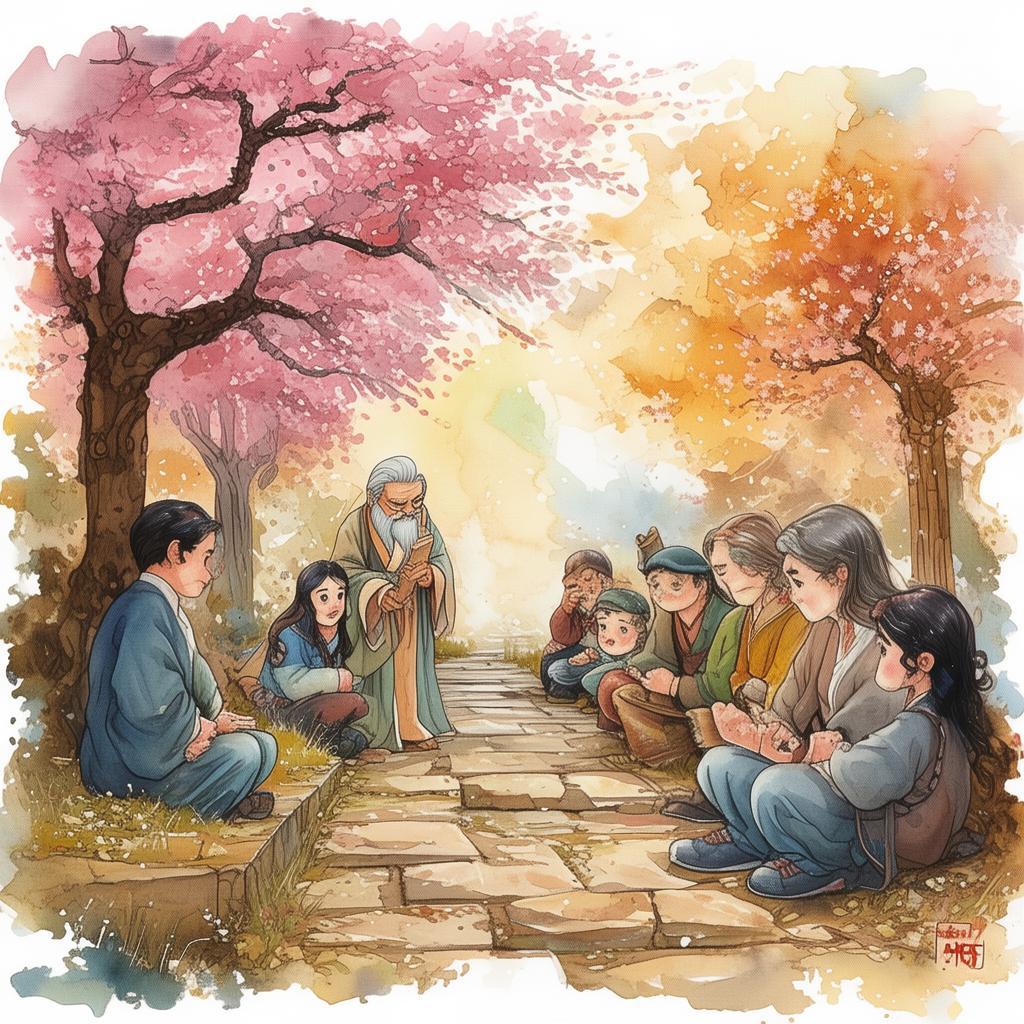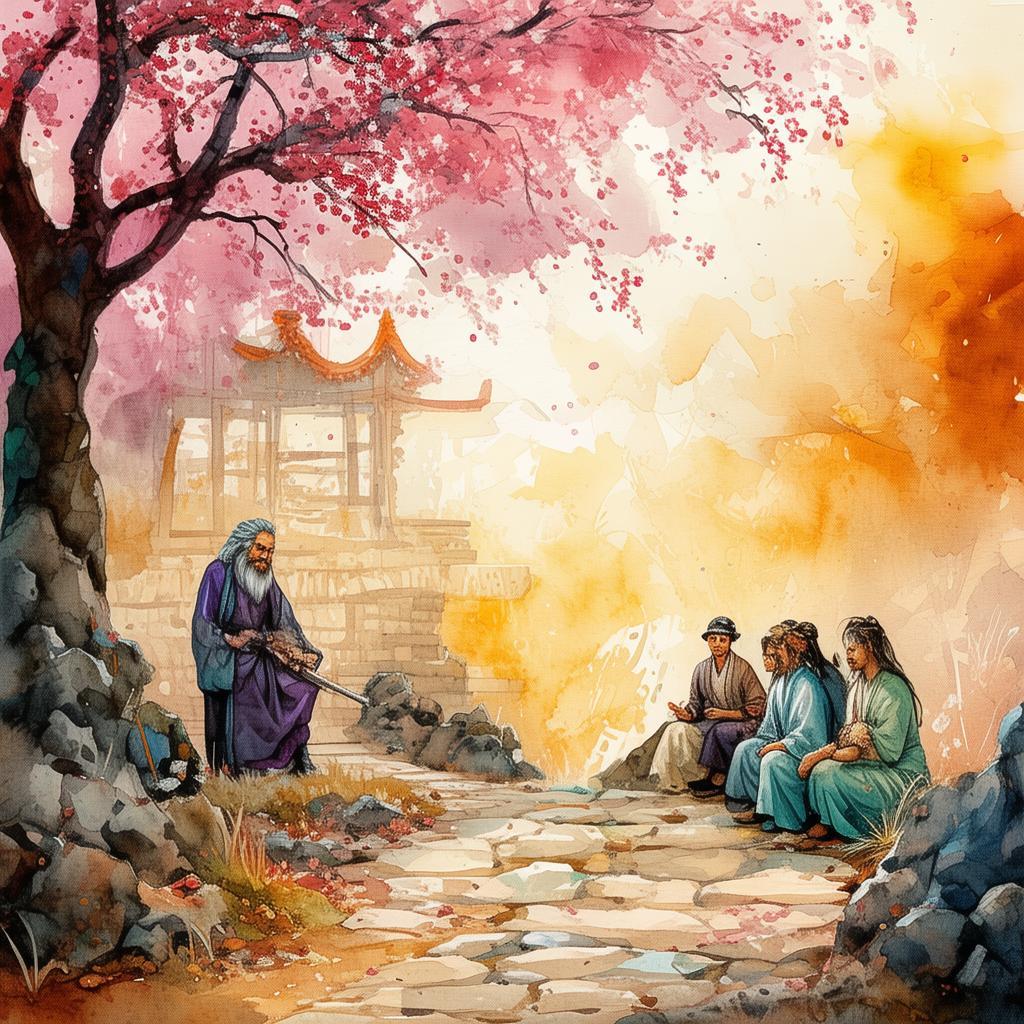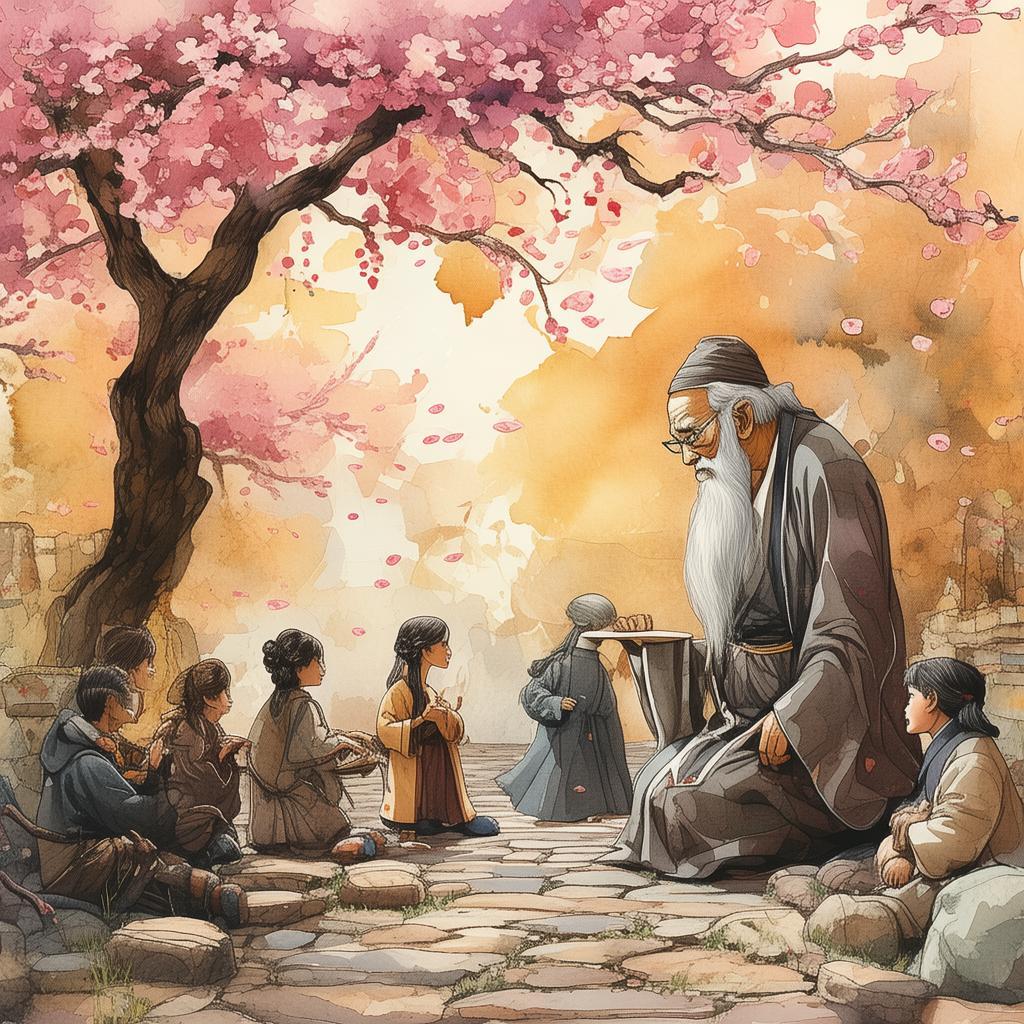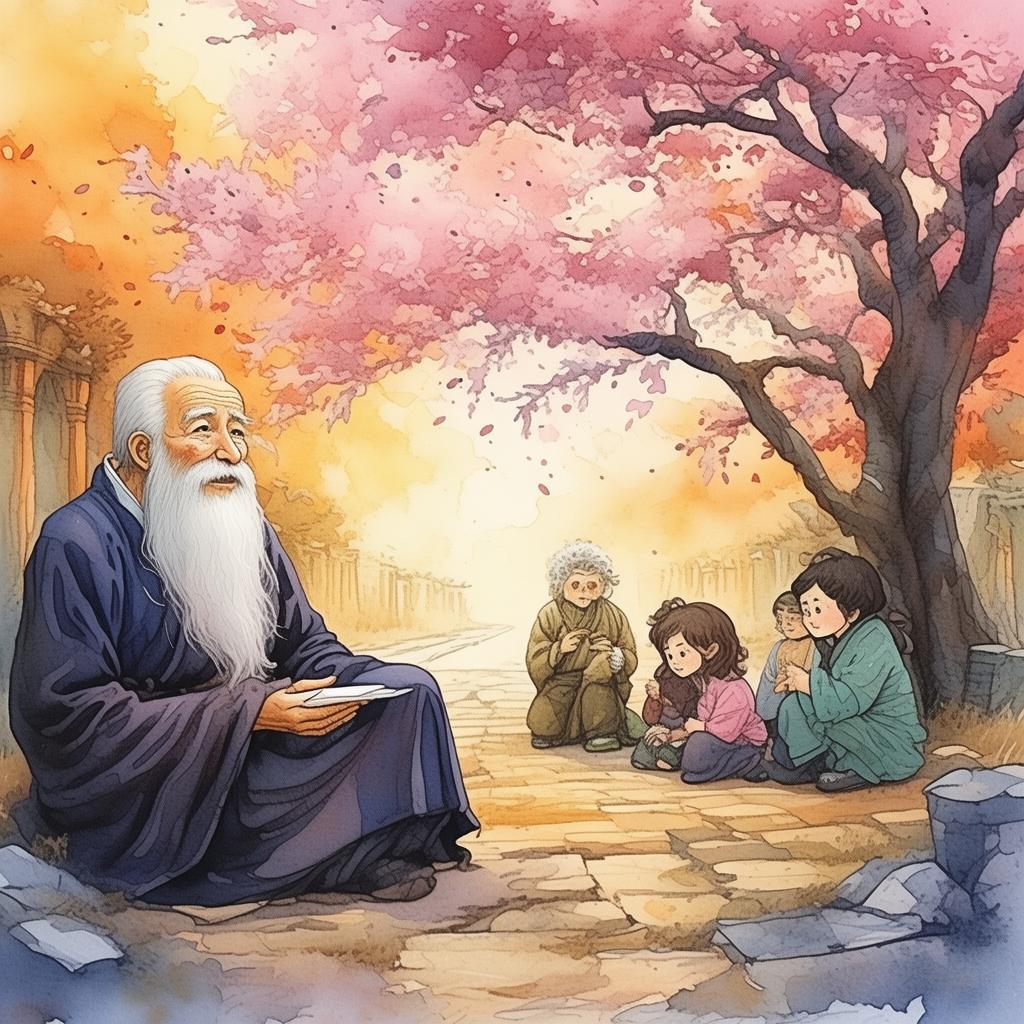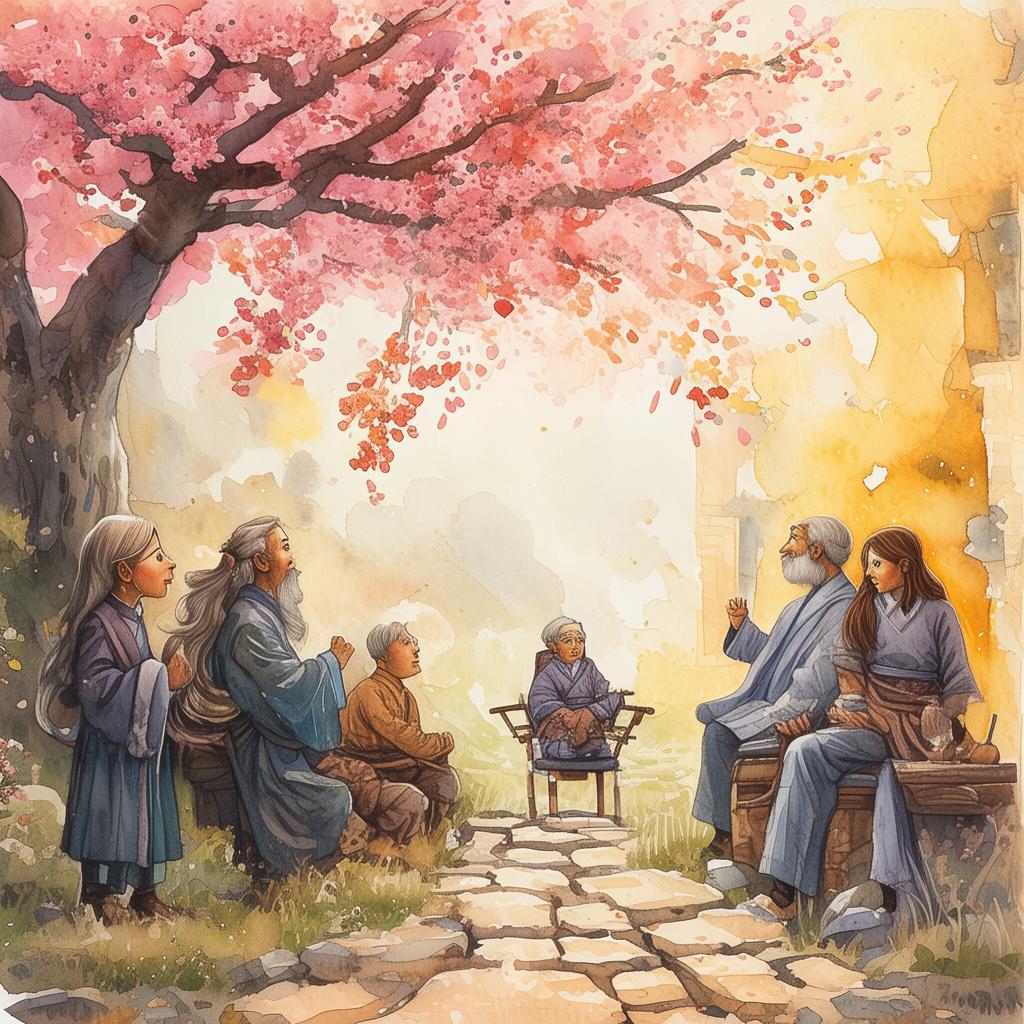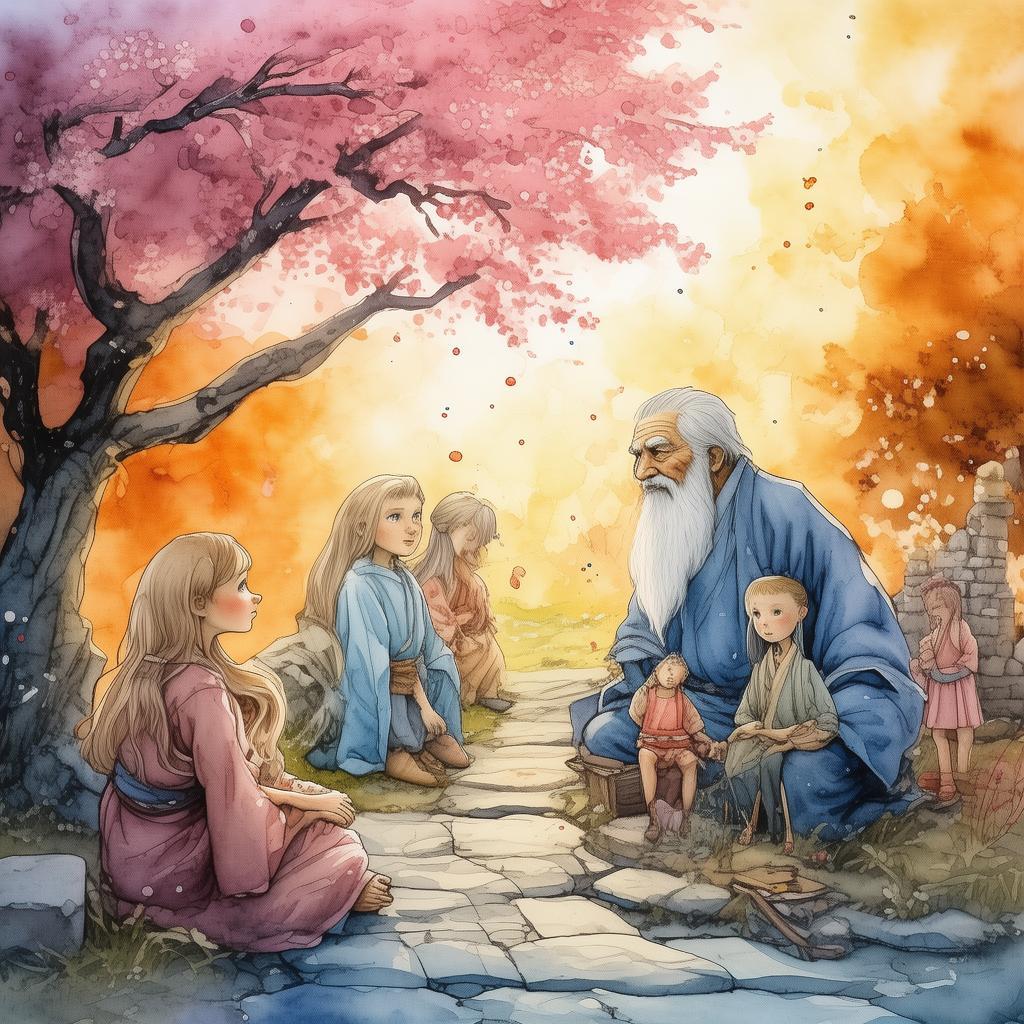Resonating Strings of Valor: The Symphony of Zhao's Last Stand
In the tumultuous era of the Warring States, the kingdom of Zhao, once a beacon of culture and power, now teetered on the brink of annihilation. The great strategist, Lord Yan, foresaw the impending doom and devised a daring plan to save Zhao—a plan that would intertwine the fate of the kingdom with the power of music.
The story begins with the renowned composer, Xiao Qing, a man whose melodies could stir the soul and whose compositions were said to bring peace to the battlefield. Lord Yan approached Xiao Qing with a proposition that would test the boundaries of his art and courage. He requested that Xiao Qing compose a symphony, not just any symphony, but one that could resonate with the spirits of the soldiers and inspire them to fight with renewed vigor.
The title of the symphony was to be "The Symphony of Zhao's Last Stand." The task was daunting, for the music needed to be powerful enough to overcome the despair that had settled over the kingdom. Xiao Qing, driven by a deep sense of duty and a love for his homeland, accepted the challenge.
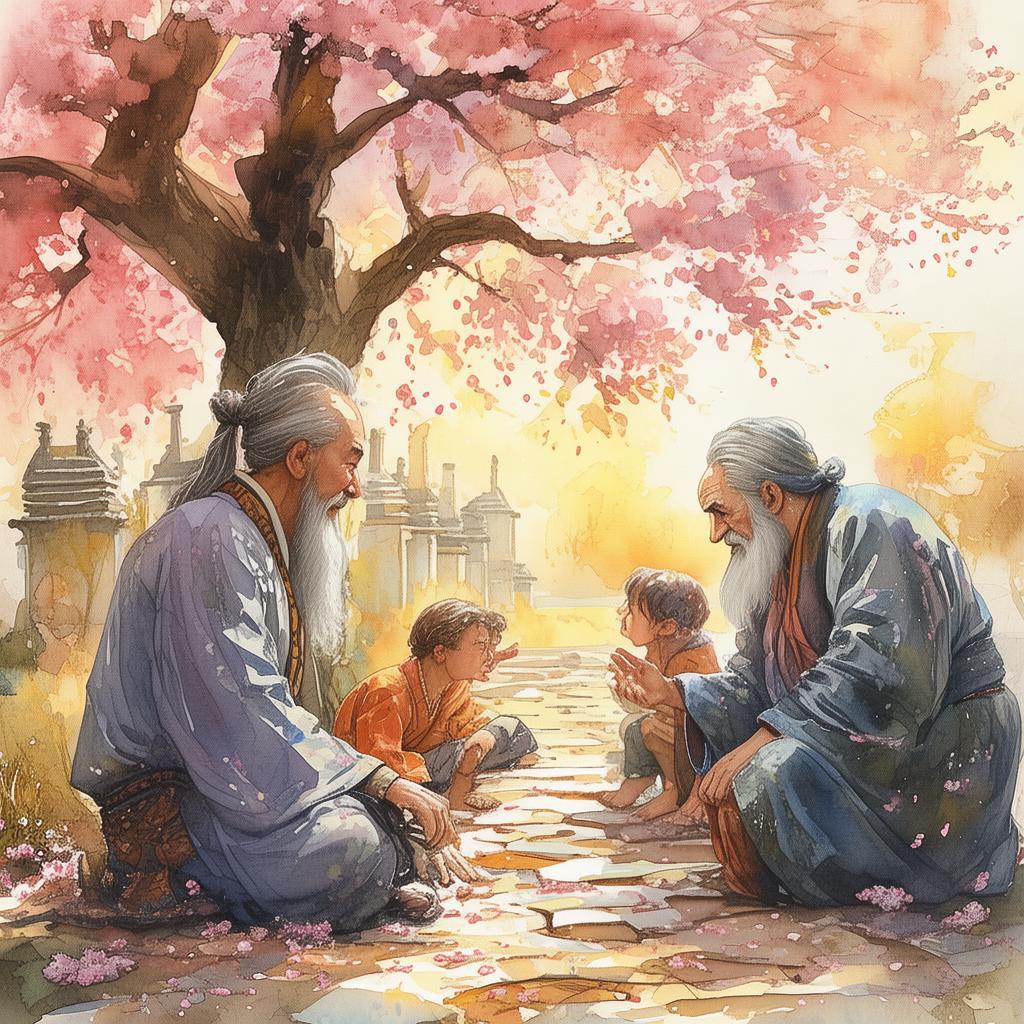
As Xiao Qing began to compose, he drew inspiration from the ancient texts of the Warring States, weaving together the strategies of Sun Tzu with the melodies of Confucius. He incorporated the "Eight Strategies of the Ancient Warriors," a collection of battle tactics that had been passed down through generations, into the very fabric of the music.
The first movement of the symphony, "The Gathering Storm," depicted the gathering of enemies from all sides, the darkening skies, and the ominous clouds that loomed over Zhao. The music was somber, yet it held a quiet strength, as if to say that even in the face of overwhelming odds, hope still flickered.
The second movement, "The Echo of the Warhorn," was a call to arms. It began with a single, piercing note, the warhorn's call to battle, which quickly escalated into a cacophony of brass and percussion, representing the chaos and confusion of war. Yet, amidst the chaos, a melody emerged, a thread of hope that guided the soldiers forward.
The third movement, "The Path of Courage," was a tribute to the bravery of the soldiers. The music was bold and majestic, with a crescendo that seemed to lift the spirits of the listeners. It was a reminder that even in the darkest of times, courage could light the way.
The fourth movement, "The Resonance of Unity," was the climax of the symphony. It was a fusion of all the previous movements, a harmonious blend of the strategies and the melodies. The music was powerful, almost overwhelming, as if to say that the kingdom of Zhao would rise from the ashes, united and stronger than ever.
As the symphony reached its conclusion, the people of Zhao gathered in the central square, their hearts pounding with anticipation. Xiao Qing, standing at the helm of the orchestra, raised his baton. The music began, and the air was filled with the resonating strings of valor.
The soldiers, inspired by the symphony, took to the battlefield with renewed vigor. The music had become a part of them, a force that could not be ignored or defeated. In the end, it was the music that turned the tide of war, saving the kingdom of Zhao from certain destruction.
The Symphony of Zhao's Last Stand became a legend, a tale of music's power to inspire and unite. Xiao Qing, the composer, was hailed as a hero, his symphony a testament to the indomitable spirit of the people of Zhao. And so, in the annals of history, the story of the musical journey to save Zhao would be forever etched in the hearts of all who heard its resonating strings of valor.
✨ Original Statement ✨
All articles published on this website (including but not limited to text, images, videos, and other content) are original or authorized for reposting and are protected by relevant laws. Without the explicit written permission of this website, no individual or organization may copy, modify, repost, or use the content for commercial purposes.
If you need to quote or cooperate, please contact this site for authorization. We reserve the right to pursue legal responsibility for any unauthorized use.
Hereby declared.


